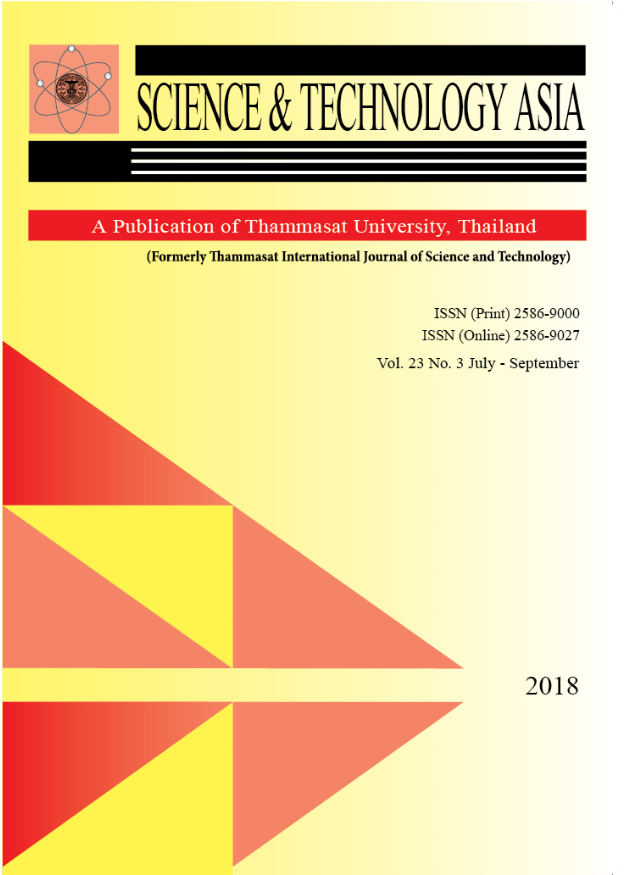Abundance of Particulate Phosphorus and its Form in Mae Klong River, Thailand
Main Article Content
Abstract
Phosphorus is an essential element for living organisms. However, an excess loading of phosphorus produces undesirable eutrophication in water bodies. However, different phosphorus species play different roles in the bioavailability and geochemical cycling of phosphorus in the water column. Few studies on the abundance and form of particulate phosphorus have been conducted in Thailand. This study investigated the abundance of particulate phosphorus, in both organic and inorganic forms, in the Mae Klong river, Thailand. The variation in abundance of particulate phosphorus and its form were examined. Low Total Particulate Phosphorus (TPP) concentrations were found upstream, with two TPP peaks at the MK7 and MK10 stations, which are located near urban areas. Within the TPP pool, Particulate Organic Phosphorus (POP) was the dominant form of particulate phosphorus at eight sampling stations, whereas Particulate Inorganic Phosphorus (PIP) was the dominant form at four sampling stations. The high proportion of POP in the TPP pool and strong relationship between TPP, POP, and chlorophyll a suggested that phytoplankton was a source of particulate phosphorus in the Mae Klong River. Our findings on the abundance and chemical speciation provide a better understanding of the cycle of this bioactive element and, will support the establishment of water management and regulation in the Mae Klong River.


